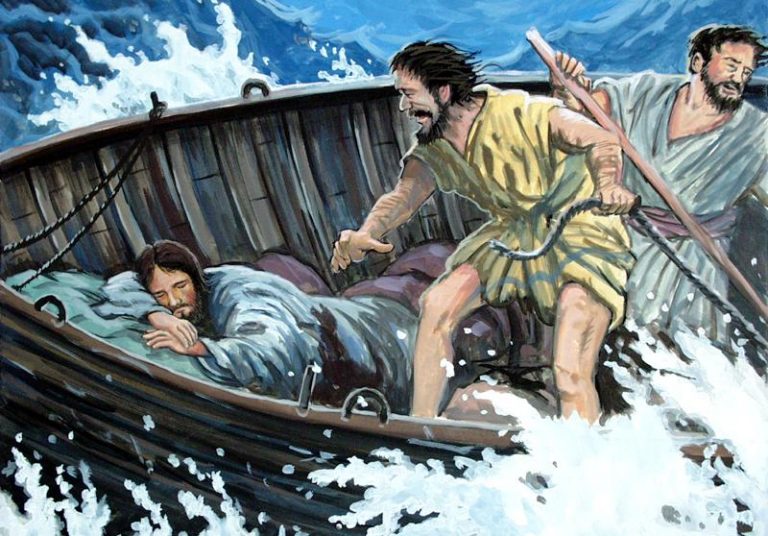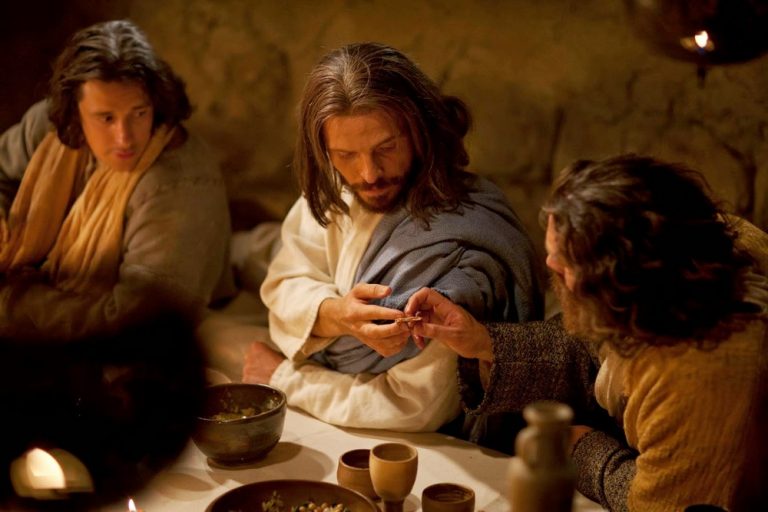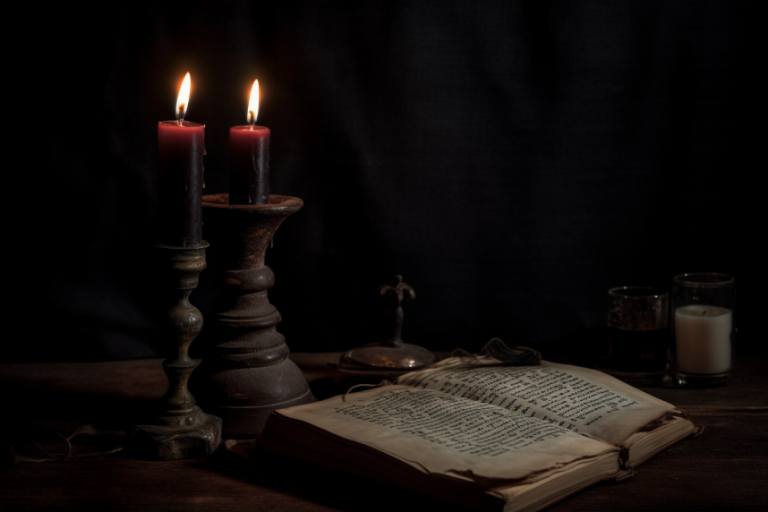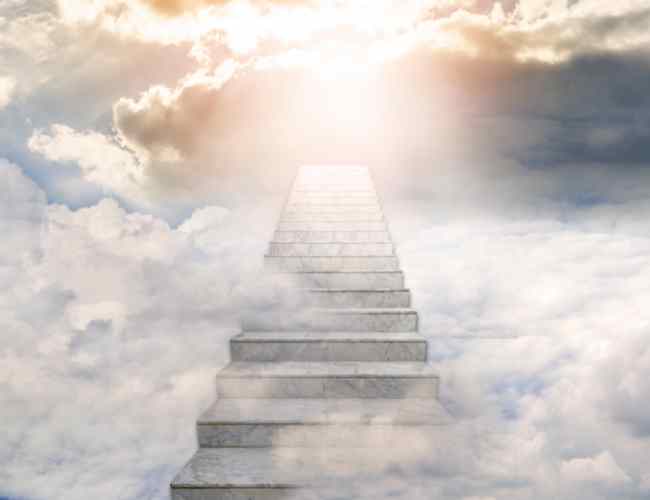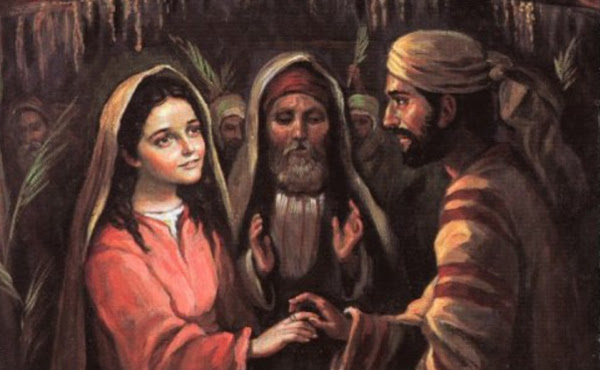Behind the Masks: Exploring the Question, ‘Why Don’t Some Christians Celebrate Halloween?
Halloween, celebrated annually on October 31st, has its roots in the ancient Celtic festival of Samhain, which marked the end of the harvest season and the beginning of winter. Over time, the holiday has evolved and incorporated various traditions from both pagan and Christian beliefs.
Today, Halloween is widely known for its costumes, trick-or-treating, and spooky themes. However, not everyone participates in these festivities, particularly some Christians who may have reservations about the holiday.
The primary reason some Christians don’t celebrate Halloween is due to its pagan origins and associations with witchcraft and the occult, which they believe are incompatible with their faith.
This article will delve deeper into the history of Halloween, its connection to Christianity, and the various perspectives that have shaped Christian attitudes toward this popular holiday.
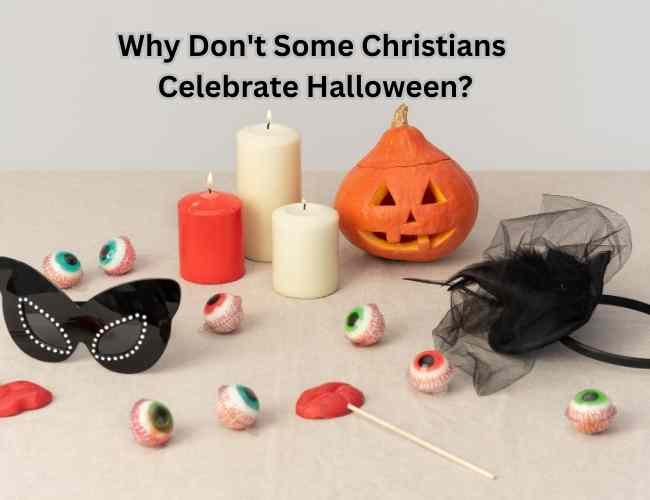
The Origins of Halloween
The origins of Halloween can be traced back thousands of years to the ancient Celtic festival of Samhain. Celebrated on the night of October 31st, Samhain marked the end of the harvest season and the beginning of the darker half of the year.
The Celts believed that during this time, the boundary between the living and the dead was blurred, allowing spirits to roam the earth. To ward off any malevolent spirits, they would light bonfires, wear costumes, and perform rituals.
As the Roman Empire expanded and conquered Celtic territories, they introduced their own festivals and traditions, which began to merge with the local customs. Two Roman festivals, in particular, had a significant influence on the development of Halloween.
Feralia was a day dedicated to honoring the dead, while Pomona was a festival celebrating the goddess of fruit and trees. Elements from these Roman celebrations gradually became intertwined with the Celtic festival of Samhain.
The Christianization of the Celtic lands further transformed the holiday. In the 8th century, Pope Gregory III designated November 1st as All Saints’ Day, a time to honor all saints and martyrs. This Christian observance was likely an attempt to replace the pagan festival of Samhain with a more religiously acceptable celebration.
The night before All Saints’ Day, October 31st, became known as All Hallows’ Eve, which eventually evolved into the modern term “Halloween.” The following day, November 2nd, was established as All Souls’ Day, a day to pray for the souls of the dead.
Over the centuries, Halloween has continued to evolve, incorporating various traditions from its Celtic, Roman, and Christian roots. Today, the holiday is widely known for its costumes, trick-or-treating, and spooky themes.
However, not everyone participates in these festivities, particularly some Christians who may have reservations about the holiday due to its pagan origins and associations with witchcraft and the occult. In the following sections, we will explore these concerns and delve deeper into the complex relationship between Christianity and Halloween.
| Period | Festival/Event | Description |
|---|---|---|
| Ancient Celtic | Samhain | End of harvest, beginning of winter, honoring the dead |
| Roman | Feralia | Day to honor the dead |
| Roman | Pomona | Festival of the goddess of fruit and trees |
| Christian | All Saints’ Day | Honoring all saints and martyrs on November 1st |
| Christian | All Souls’ Day | Praying for the souls of the dead on November 2nd |
| Modern | Halloween (All Hallows’ Eve) | Costumes, trick-or-treating, and spooky themes |
Pagan Roots and Christian Concerns
Despite the incorporation of Christian observances into the modern celebration of Halloween, the holiday still retains some of its pagan roots, which can be a cause for concern among some Christians.
The bonfires, costumes, and divination practices that originated from the Celtic festival of Samhain, as well as the Roman festivals of Feralia and Pomona, have left a lasting impact on the way Halloween is celebrated today. Some Christians argue that these pagan elements are incompatible with their faith and should be avoided.
Early Christians sought to distance themselves from pagan rituals and beliefs, and this sentiment has persisted among some believers throughout history. Concerns about promoting witchcraft, the occult, and other non-Christian practices have led some Christians to view Halloween as a celebration of evil and darkness. They believe that participating in Halloween festivities may inadvertently endorse or encourage these negative associations.
Furthermore, some Christians feel that the focus on supernatural elements, such as ghosts and spirits, during Halloween is contrary to their belief in the sovereignty of God and the teachings of the Bible. They argue that engaging in activities that emphasize fear and the supernatural can distract from their faith and potentially lead them away from God.
In light of these concerns, some Christians choose to abstain from Halloween celebrations altogether or seek alternative ways to observe the holiday that align more closely with their faith and values. In the following sections, we will explore these alternative celebrations, as well as the impact of popular culture on Christian perceptions of Halloween and the importance of respecting personal convictions and cultural differences within the Christian community.
The Reformation and Halloween
The Reformation, a major religious movement in the 16th century, played a significant role in shaping the beliefs and practices of many Christians, including their views on Halloween. The Reformation was led by key figures such as Martin Luther, John Calvin, and Huldrych Zwingli, who sought to reform the Roman Catholic Church and ultimately led to the establishment of various Protestant denominations.
During the Reformation, many Christians began to distance themselves from the traditions and practices associated with the Catholic Church, including the celebration of Halloween. This was primarily due to the Reformers’ emphasis on the authority of the Bible and their rejection of non-biblical traditions.
They believed that Christians should focus on their faith in Jesus Christ and the teachings of the Bible, rather than participating in pagan-influenced festivities.
Here are some key reasons why the Reformation influenced Christians’ views on Halloween:
- Sola Scriptura: The Reformers emphasized the principle of “Sola Scriptura,” which means “Scripture alone.” They believed that the Bible should be the sole authority for Christian beliefs and practices, and since Halloween is not mentioned in the Bible, they considered it to be a non-essential tradition.
- Pagan origins: Halloween has its roots in the ancient Celtic festival of Samhain, which was later Christianized as All Hallows’ Eve. The Reformers were concerned about the pagan origins of the holiday and believed that Christians should not participate in practices that could be seen as endorsing pagan beliefs.
- Focus on faith: The Reformers encouraged Christians to focus on their faith in Jesus Christ and the teachings of the Bible, rather than engaging in worldly celebrations. They believed that participating in Halloween festivities could distract Christians from their faith and potentially lead them astray.
- Superstition: Halloween has long been associated with superstitions, such as the belief in ghosts, witches, and other supernatural beings. The Reformers rejected superstition as contrary to biblical teachings and discouraged Christians from participating in activities that could be seen as promoting or endorsing such beliefs.
Alternative Christian Celebrations
While some Christians choose not to celebrate Halloween due to its pagan origins and associations with evil, others have found alternative ways to observe the holiday in a more faith-based manner.
These alternative celebrations often focus on the positive aspects of the season, such as community, fellowship, and fun, while avoiding the darker themes of Halloween.
- Harvest Festivals: Many churches and Christian communities host harvest festivals as an alternative to Halloween. These events typically include games, food, and activities that celebrate the bounty of the harvest season. They provide a family-friendly environment where children can enjoy themselves without participating in traditional Halloween activities.
- Reformation Day: Some Christians choose to celebrate Reformation Day on October 31st, commemorating the day in 1517 when Martin Luther nailed his 95 Theses to the door of All Saints’ Church in Wittenberg, Germany. This event marked the beginning of the Protestant Reformation, and some Christians see it as a more appropriate focus for the day than Halloween.
- All Saints’ Day and All Souls’ Day: These Christian holidays, celebrated on November 1st and 2nd, respectively, honor the saints and the souls of the deceased. Some Christians choose to focus on these days instead of Halloween, attending special church services and participating in activities that remember and honor the lives of those who have passed away.
- Trunk or Treat: This alternative to traditional trick-or-treating involves church members decorating their car trunks and handing out candy to children in a safe, controlled environment. Trunk or Treat events often include games, food, and other activities, providing a fun and faith-based alternative to Halloween celebrations.
The Role of Popular Culture
Popular culture has played a significant role in shaping the modern perception of Halloween, often emphasizing the darker and more sinister aspects of the holiday.
Movies, television shows, and other forms of media have contributed to the association of Halloween with horror, fear, and evil, which can be off-putting to some Christians.
- Horror Films: The horror film genre has long been associated with Halloween, with many movies released around the holiday or featuring Halloween-themed plots. These films often depict graphic violence, supernatural elements, and evil forces, which can be disturbing to some Christians and contribute to their decision not to celebrate Halloween.
- Television Shows and Cartoons: Many TV shows and cartoons, especially those aimed at children, feature Halloween-themed episodes that focus on the spooky and supernatural aspects of the holiday. This can reinforce the association of Halloween with fear and evil in the minds of young viewers.
- Commercialization: The commercialization of Halloween has led to an increased emphasis on costumes, decorations, and other products that often feature dark and sinister themes. This focus on the darker aspects of the holiday can make it difficult for some Christians to find ways to celebrate Halloween that align with their faith and values.
Personal Convictions and Cultural Differences
Personal convictions play a significant role in why some Christians choose not to celebrate Halloween. For many believers, the holiday’s association with pagan rituals, witchcraft, and the glorification of evil is enough to deter them from participating.
They may feel that engaging in Halloween festivities goes against their faith and values, and they choose to abstain from the celebration to maintain their spiritual integrity.
Cultural differences also contribute to the varying perspectives on Halloween among Christians. In some countries, Halloween is not widely celebrated or is viewed as a purely secular event. In these cases, Christians may not feel the need to participate in the festivities, as it does not hold any religious significance for them.
Some cultures have their own unique traditions and holidays that may coincide with or take precedence over Halloween, further influencing Christians’ decisions on whether or not to celebrate the holiday.
Conclusion
In conclusion, the reasons why some Christians don’t celebrate Halloween are rooted in its origins, religious beliefs, and historical events. While many people enjoy the fun and festivities of Halloween, it’s essential to understand and respect the differing perspectives and choices of others.
By acknowledging the various factors that contribute to these decisions, we can foster a greater sense of understanding and tolerance within our communities.
Ultimately, the choice to celebrate or abstain from Halloween is a personal one, and it’s crucial to respect the beliefs and traditions of others, regardless of our own views on the holiday.
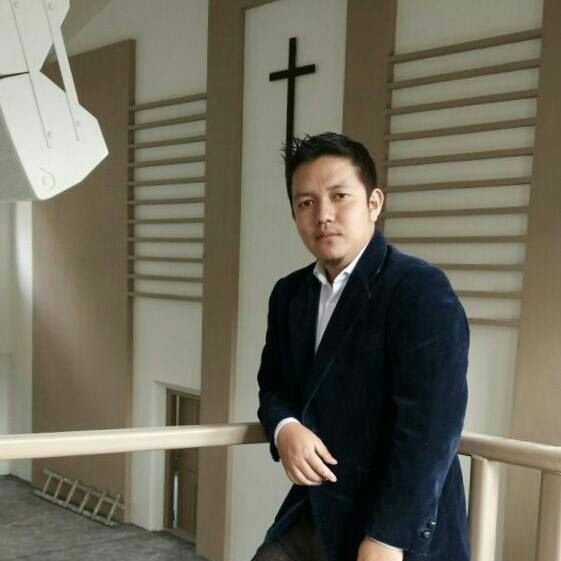
Sangtea Hmar is a passionate leader of the Youth Christian Fellowship at the Electric Vengthlang Presbyterian Church in Aizawl, Mizoram, India. He is the owner of Christiantone.com and is committed to spreading the word of God. He loves to mentor youth and help them grow in their faith.

